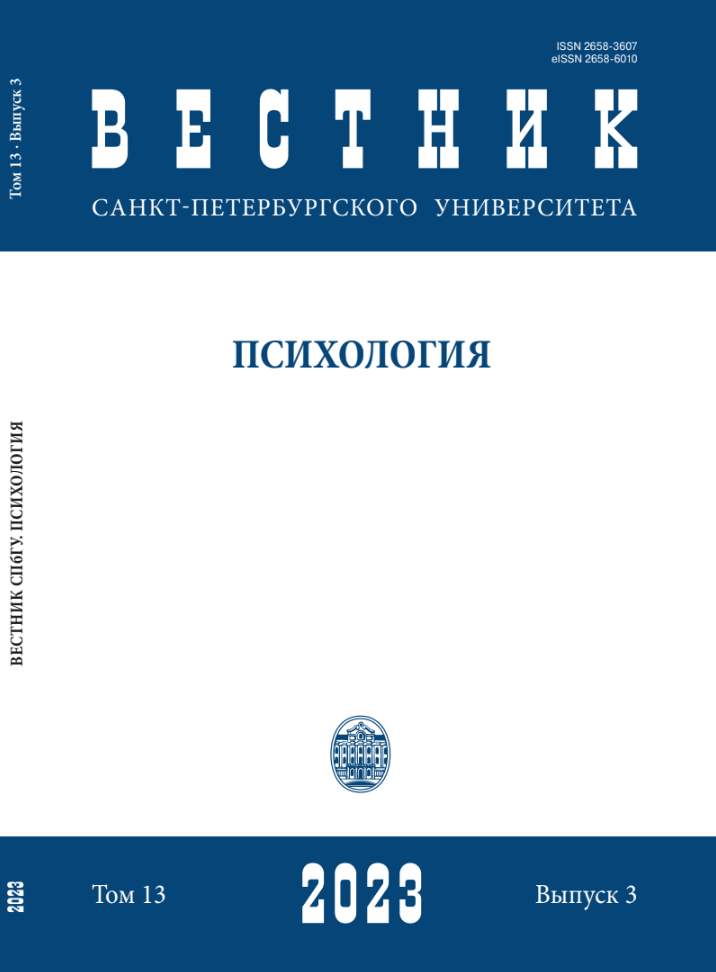Динамика развития рабочей памяти у детей в возрасте с 5 до 7 лет в период социальной изоляции: роль экранного времени и количества детей в семье
DOI:
https://doi.org/10.21638/spbu16.2023.307Аннотация
В предыдущих работах было зафиксировано снижение темпа развития рабочей памяти у детей в период социальной изоляции в связи с пандемией COVID-19. Основной целью настоящего исследования стал поиск ответа на вопрос, был ли этот дефицит компенсирован после возвращения детей к систематическому образовательному процессу. Участниками исследования стали 276 детей, которые с 5 до 7 лет ежегодно проходили индивидуальное обследование слухоречевой и зрительной рабочей памяти. Диагностика проводилась с помощью русскоязычных версий субтестов NEPSY-II «Повторение предложений» и «Память на конструирование». Для контроля факторов домашней среды в исследовании были учтены продолжительность экранного времени и количество детей в семье в период социальной изоляции. Результаты указывают на то, что продолжительность экранного времени детей в период социальной изоляции находилась в диапазоне от 2 до 44 ч в неделю. Общей закономерностью развития слухоречевой и зрительной рабочей памяти за весь период стал естественный статистически значимый рост вне зависимости от продолжительности экранного времени и количества детей в семье. Тем не менее интенсивность развития слухоречевой рабочей памяти оказалась связана с экранным временем. Чем больше дети пользовались цифровыми устройствами, тем ниже у них был как актуальный уровень развития слухоречевой рабочей памяти на каждом диагностическом срезе, так и темп ее развития. Наиболее выраженное негативное влияние на развитие слухоречевой рабочей памяти от длительного экранного времени было зафиксировано среди единственных детей в семье. Избыточное использование цифровых устройств единственными детьми привело не просто к замедлению темпа развития слухоречевой рабочей памяти, но к ее временному регрессу. Дети смогли компенсировать регресс в развитии слухоречевой рабочей памяти только после возвращения к систематическому образовательному процессу в возобновивших свою работу детских садах. Исследование не выявило значимого эффекта продолжительности экранного времени и количества детей в семье на показатели и темп развития зрительной рабочей памяти.
Ключевые слова:
психология развития, культурно-исторический подход, слухоречевая рабочая память, зрительная рабочая память, экранное время, сиблинги, социальная изоляция
Скачивания
Библиографические ссылки
References
Загрузки
Опубликован
Как цитировать
Выпуск
Раздел
Лицензия
Статьи журнала «Вестник Санкт-Петербургского университета. Психология» находятся в открытом доступе и распространяются в соответствии с условиями Лицензионного Договора с Санкт-Петербургским государственным университетом, который бесплатно предоставляет авторам неограниченное распространение и самостоятельное архивирование.




